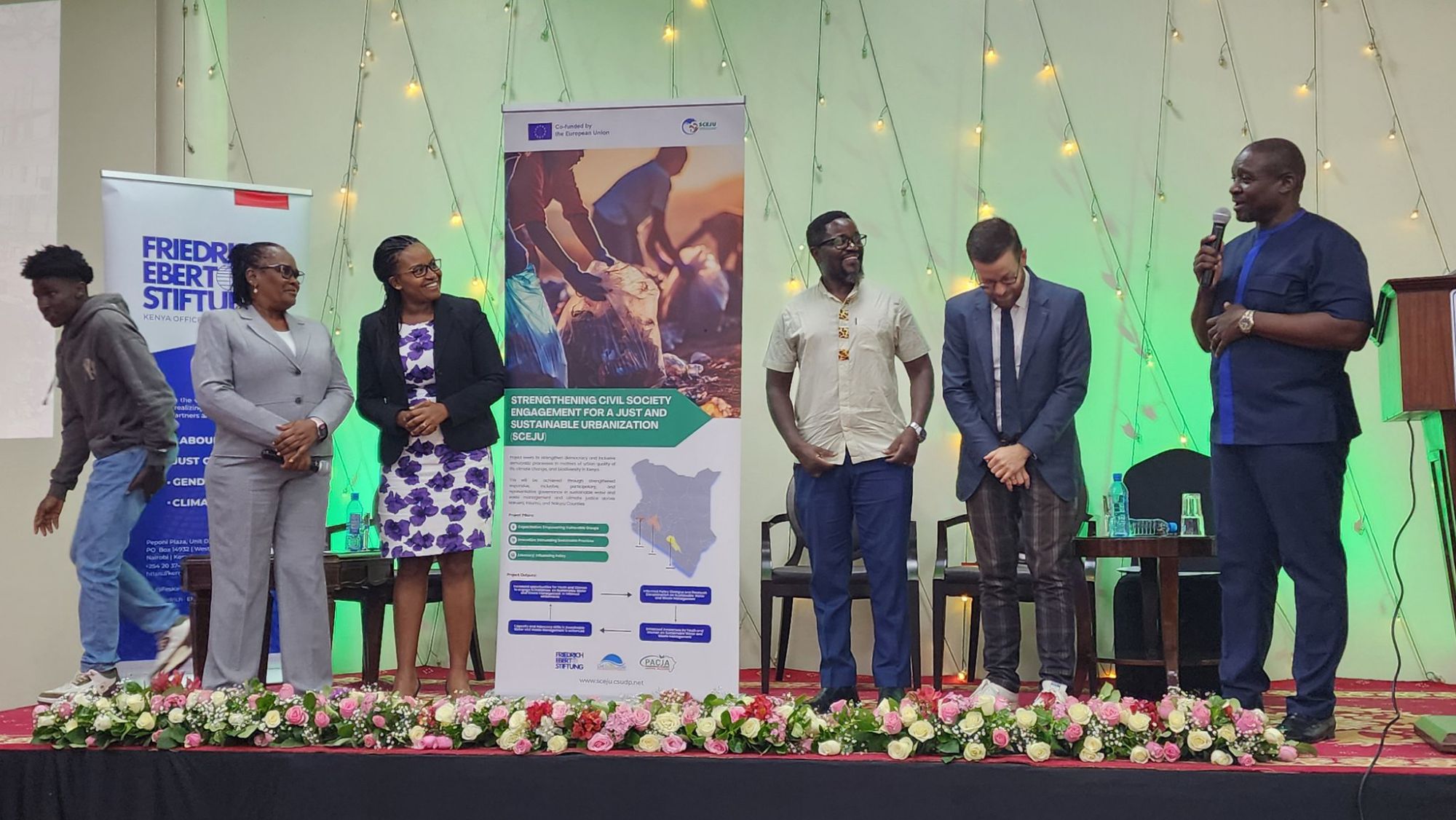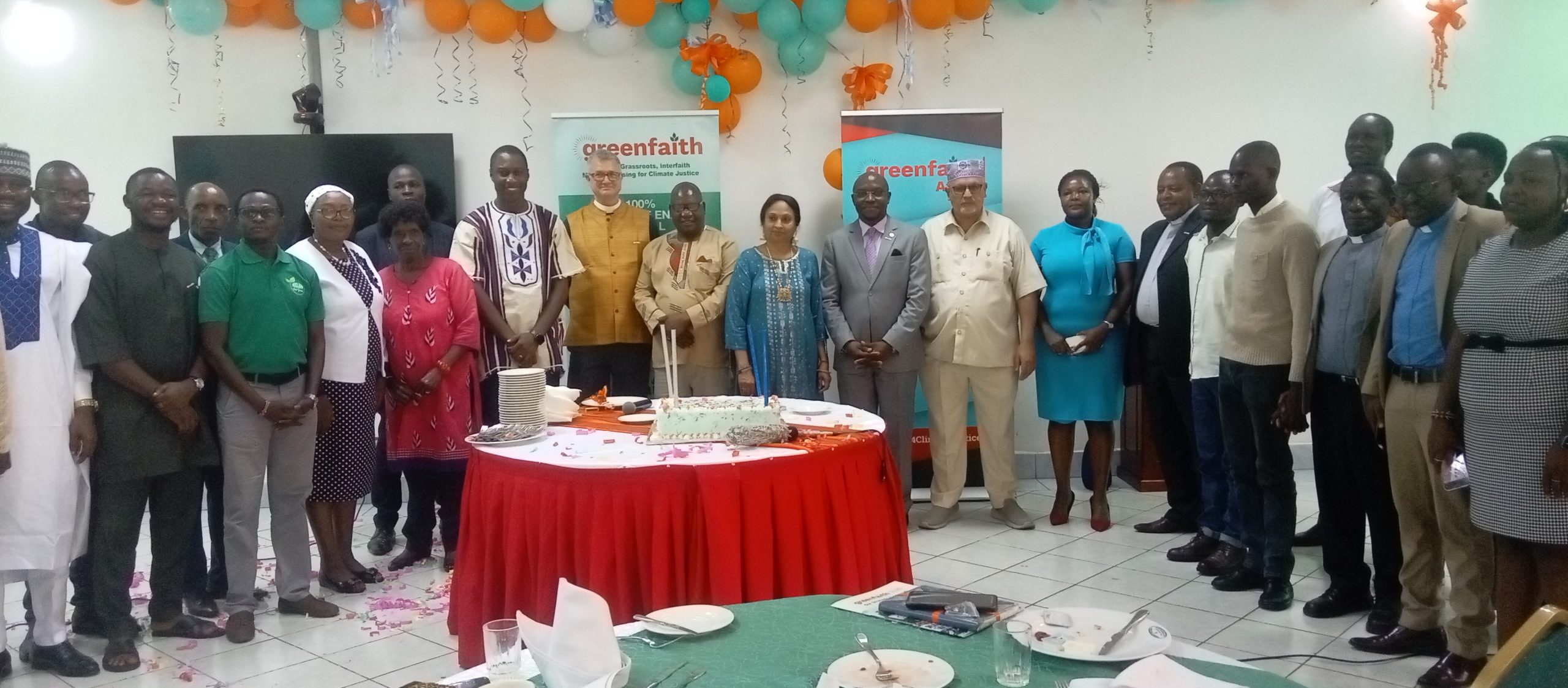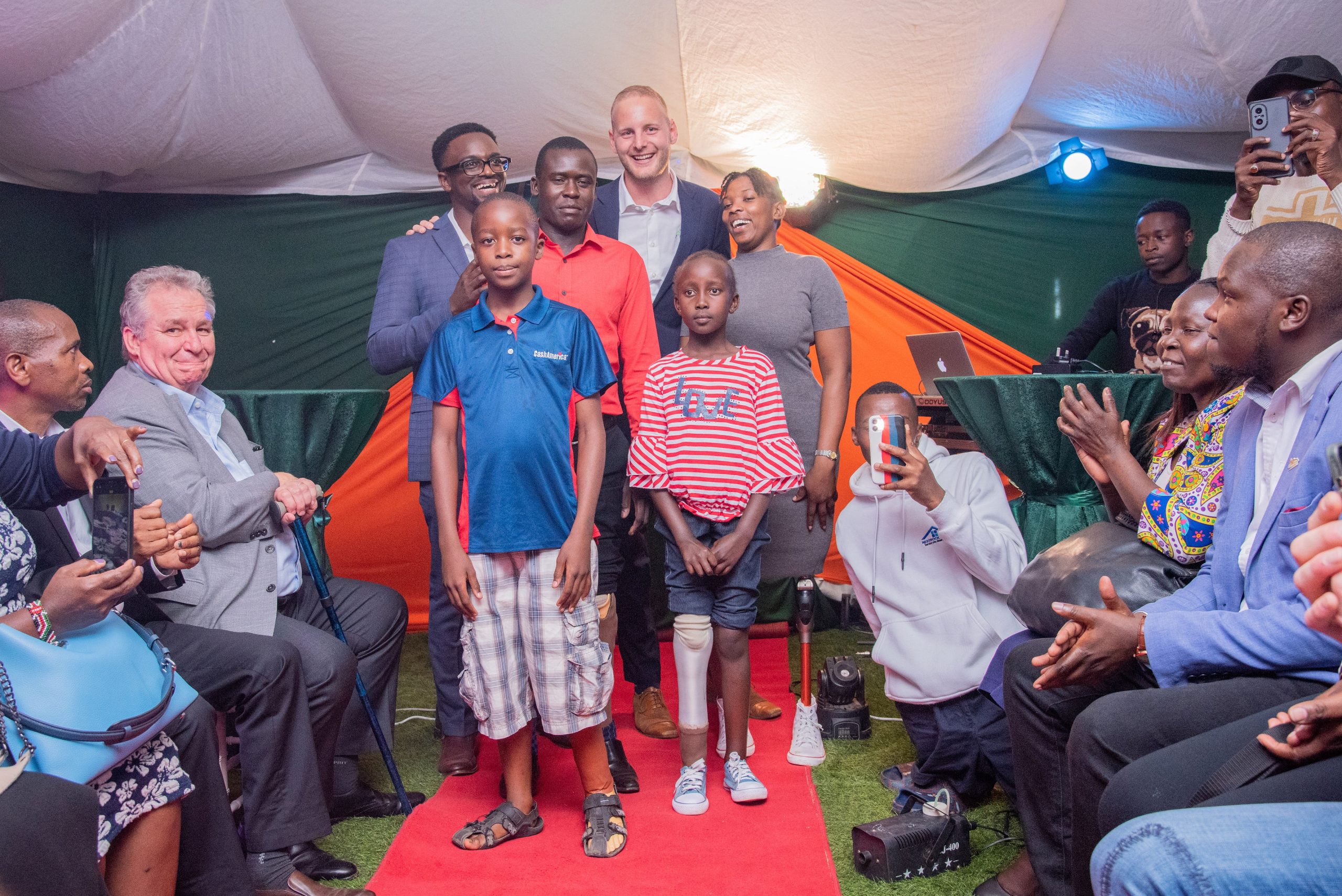By Eddah Waithaka
Today, as the world observes World Cities Day 2024, the focus shifts to the theme “Youth Climate Changemakers: Catalyzing Local Action for Urban Sustainability.” In a significant move to enhance urban sustainability efforts, a consortium of non-governmental organizations has unveiled a groundbreaking initiative, the Strengthening Civil Society Engagement for a Just and Sustainable Urbanization (SCEJU) project.
Co-funded by the European Union, this three-year endeavor (2024-2026) aims to empower communities and promote collaborative action in addressing pressing urban environmental challenges.

The consortium behind the project includes the Friedrich-Ebert-Stiftung (FES-Kenya), the Civil Society Urban Development Platform (CSUDP), and the Pan African Climate Justice Alliance (PACJA).
Today, October 31, 2024, these organizations held a Public Launch breakfast meeting at the Panari Hotel in Nairobi, where they presented the project to key stakeholders and members of the public.
The primary aim of the SCEJU project is to enhance democracy and promote inclusive democratic processes concerning urban quality of life, climate change, and biodiversity in Kenya.
Despite the introduction of the Sustainable Waste Management Act 2022, which mandates household-level waste sorting and other environmentally friendly regulations, there is still a significant gap in compliance.
Additionally, while there have been progressive reforms in the water sector, which have largely shifted service provision to private entities, these changes have not adequately benefited the informal settlement areas where most urban residents live.
To advance sustainable water and waste management, FES-Kenya, CSUDP, and PACJA have secured funding from the European Union (EU) for the SCEJU project. Over the next three years, this initiative will be implemented in Kisumu, Nakuru, and Makueni counties in Kenya.
The SCEJU project focuses on empowering youth, women, and vulnerable groups in urban informal settlements within these areas, equipping them to address essential challenges related to sustainable water and waste management.
Bastian Schulz, the Country Representative for the Friedrich Ebert Stiftung Kenya Office, remarked that “PACJA, CSUDP and FES bring together vast experience from different sectors to work together to
overcome existing barriers and make water and waste management not only more inclusive but also more sustainable and equitable. Stronger voice, enhanced capacity and more just policies and policy
implementation are the focus of our joint commitment. As we target Kisumu, Nakuru and Makueni counties, SCEJU aims to assist vulnerable urban communities, particularly women and youth, to
address persistent challenges that threaten sustainable water and waste management despite constitutional guarantees.”
“The 2024 World Cities Day theme, “Youth climate change makers: Catalysing local action for urban sustainability”, is apt as it places the youth as the key drivers in catalysing local action. SCEJU’s
capacitation is aimed at unlocking the innovative potential that is inherent amongst the youth to drive change in the delivery of water and waste services within the informal settlements, which is a deliberate way of positioning the youth as climate change makers,” George Wasonga, CEO of the Civil Society Urban Development Platform, noted.
Read Also :https://switchmedianews.wordpress.com/2024/10/31/fawe-launches-landmark-report-on-teenage-pregnancy-in-kenya-insights-challenges-and-implications/
We know the power of young people who are driven to a common cause; we need to look no further than the recent GEN-Z protests in Kenya. We need this energy for much more constructive missions
like saving our planet and by extension our people. This is the time to engage that young solid waste recycler, the entrepreneurial social media influencer, the young persons in and out of school,
the artist and all. We envisage a cyclic interaction of people, planet and profit.
That is why we are investing in this collaborative venture. “Despite youth and women from urban informal settlements in Kenya providing the last mile services
for a majority to access water and waste management, they remain incapacitated to harness opportunities in those sectors for decent jobs and are often excluded from policy decision-making processes that would empower them. Therefore, SCEJU seeks to capacitate and strengthen their
voice to influence better outcomes for them and communities in Makueni, Nakuru and Kisumu counties on sustainable water and waste management,” said Titus Kaloki, Programme Coordinator, Friedrich-Ebert-Stiftung, Kenya.
The SCEJU project seeks to enhance the voices and innovative capabilities of youth, women, and vulnerable communities by creating platforms for stakeholder engagement in policy discussions. By doing so, it aims to impact service delivery, policy formulation, and public dialogue, ensuring that the needs and viewpoints of these groups are acknowledged, embraced, and effectively addressed.
“Climate justice cannot be achieved without amplifying the voices of those who bear the heaviest burden of the climate crisis. In Kenya’s urban informal settlements, vulnerable communities face
daily challenges with water access and waste management – challenges that grow more severe with each passing year of climate change. Through SCEJU, we are transforming this narrative by
empowering youth, women, and vulnerable groups in Kisumu, Makueni and Nakuru counties to become architects of their climate-resilient future. Our mission goes beyond environmental
solutions; it’s about ensuring that marginalized communities have an equal say in shaping sustainable urban policies that affect their lives,” Charles Mwangi, who serves as the Head of Programs and Research at PACJA, highlighted.






